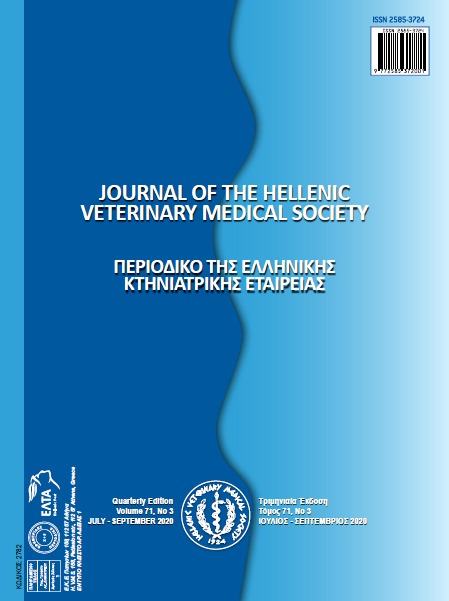Feline Hypertrophic Osteopathy Associated with Congenital Megaesophagus: Two Case Reports and Literature Review
Resumen
This report describes two cases of feline hypertrophic osteopathy (HO) associated with congenital megaesophagus (ME). The diagnosis was based upon case history, physical examination, radiography and laboratory investigations. The clinical signs of both cats included; regurgitation, weakness and reluctance to walk since birth. Physical examination revealed painful and thickened long bones, swollen joints, difficult flexion of all four limbs and normal urination, defecation, appetite as well as heart and respiratory rates. The abnormal laboratory findings were thrombocytosis, leukocytosis with lymphocytosis and monocytosis. Survey and contrast thoracic radiography showed generalizedesophageal dilatation. Radiography of appendicular skeleton revealed symmetrical and massive subperiosteal new bone formation of the affected long bones and pelvis. In conclusion, radiography of extremities is highly recommended for cats admitted with congenital ME and lameness to investigate the possibility of HO. Moreover, the HO should be listed duringthe differential diagnosis of thickened limbs in cats.
Article Details
- Cómo citar
-
ABU-SEIDA, A., TORAD, F., HASSAN, E., & ALI, K. (2020). Feline Hypertrophic Osteopathy Associated with Congenital Megaesophagus: Two Case Reports and Literature Review. Journal of the Hellenic Veterinary Medical Society, 71(3), 2413–2418. https://doi.org/10.12681/jhvms.25106
- Número
- Vol. 71 Núm. 3 (2020)
- Sección
- Case Report

Esta obra está bajo una licencia internacional Creative Commons Atribución-NoComercial 4.0.
Authors who publish with this journal agree to the following terms:
· Authors retain copyright and grant the journal right of first publication with the work simultaneously licensed under a Creative Commons Attribution Non-Commercial License that allows others to share the work with an acknowledgement of the work's authorship and initial publication in this journal.
· Authors are able to enter into separate, additional contractual arrangements for the non-exclusive distribution of the journal's published version of the work (e.g. post it to an institutional repository or publish it in a book), with an acknowledgement of its initial publication in this journal.
· Authors are permitted and encouraged to post their work online (preferably in institutional repositories or on their website) prior to and during the submission process, as it can lead to productive exchanges, as well as earlier and greater citation of published work.



